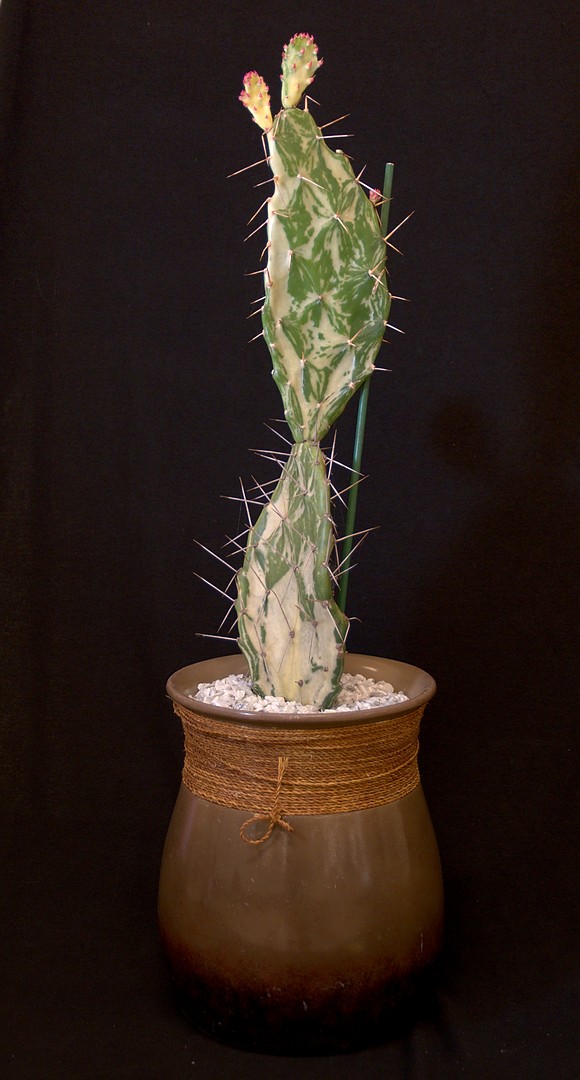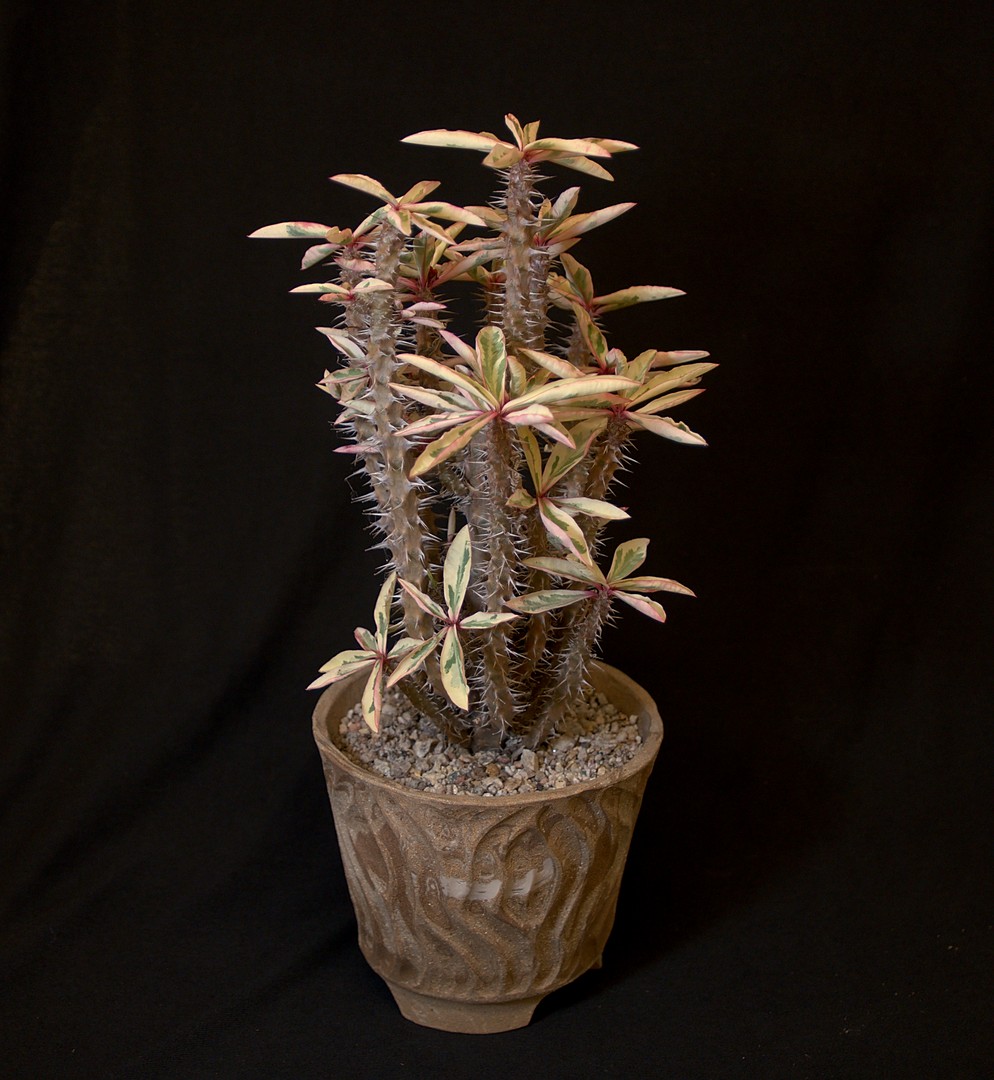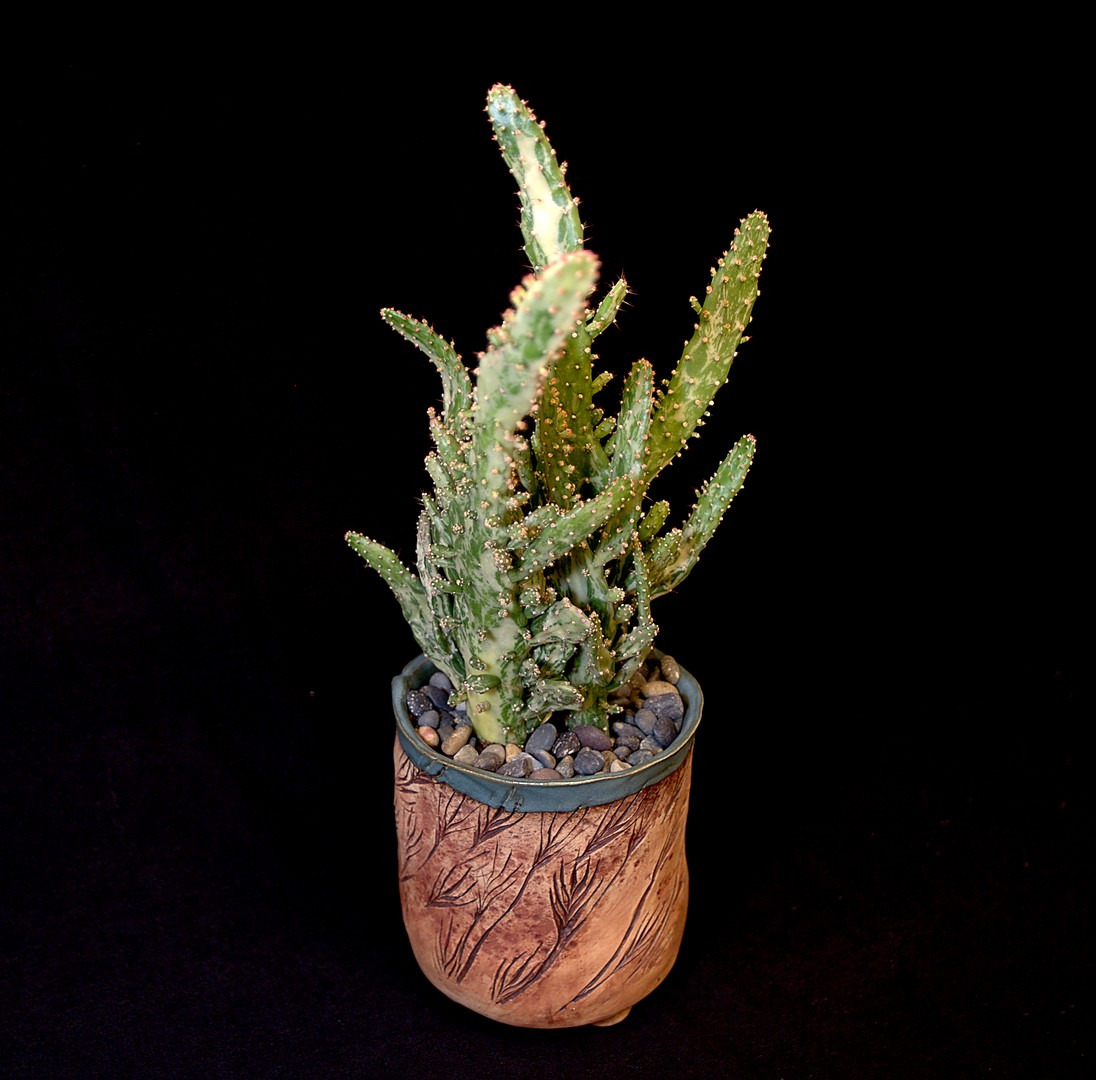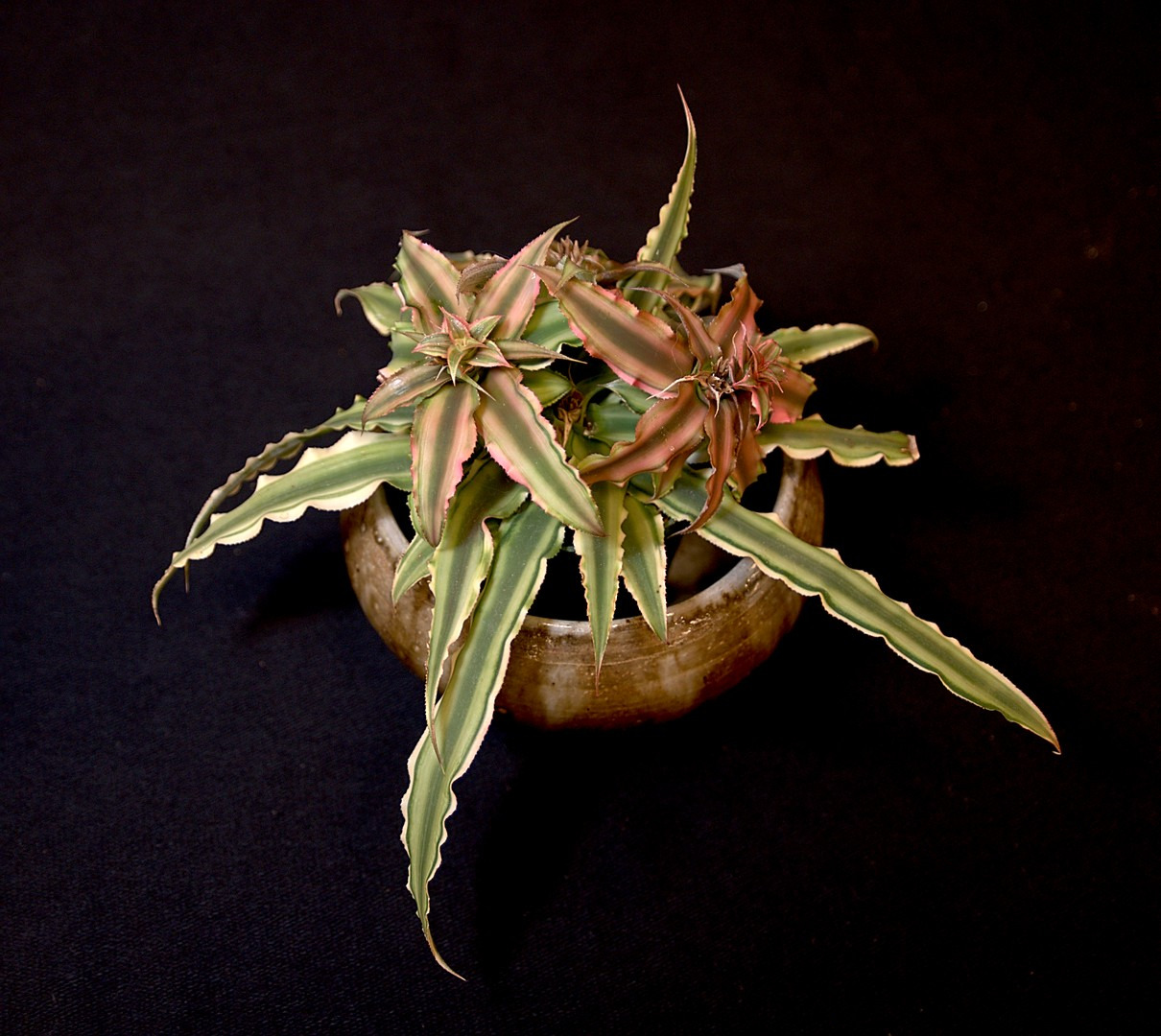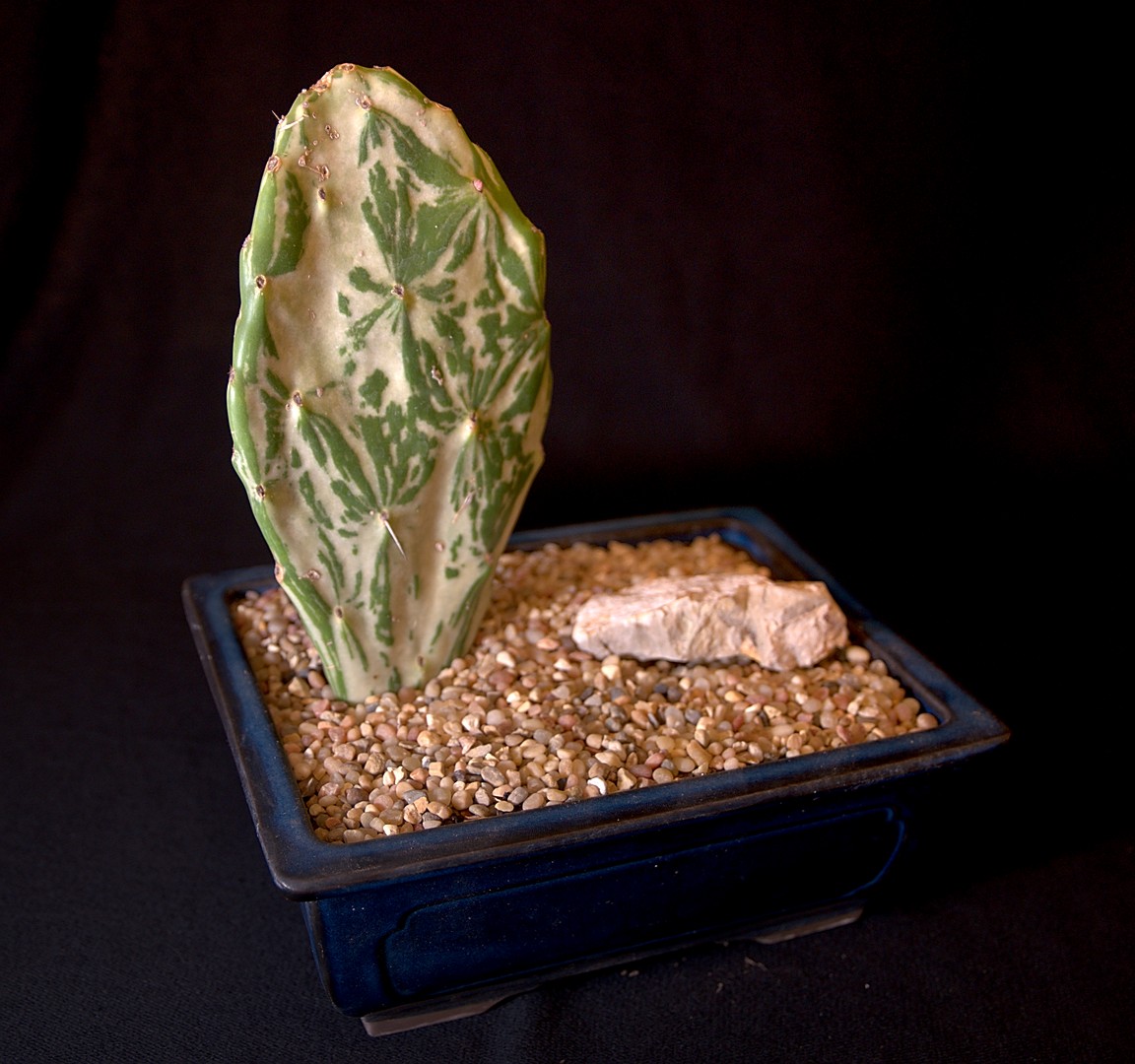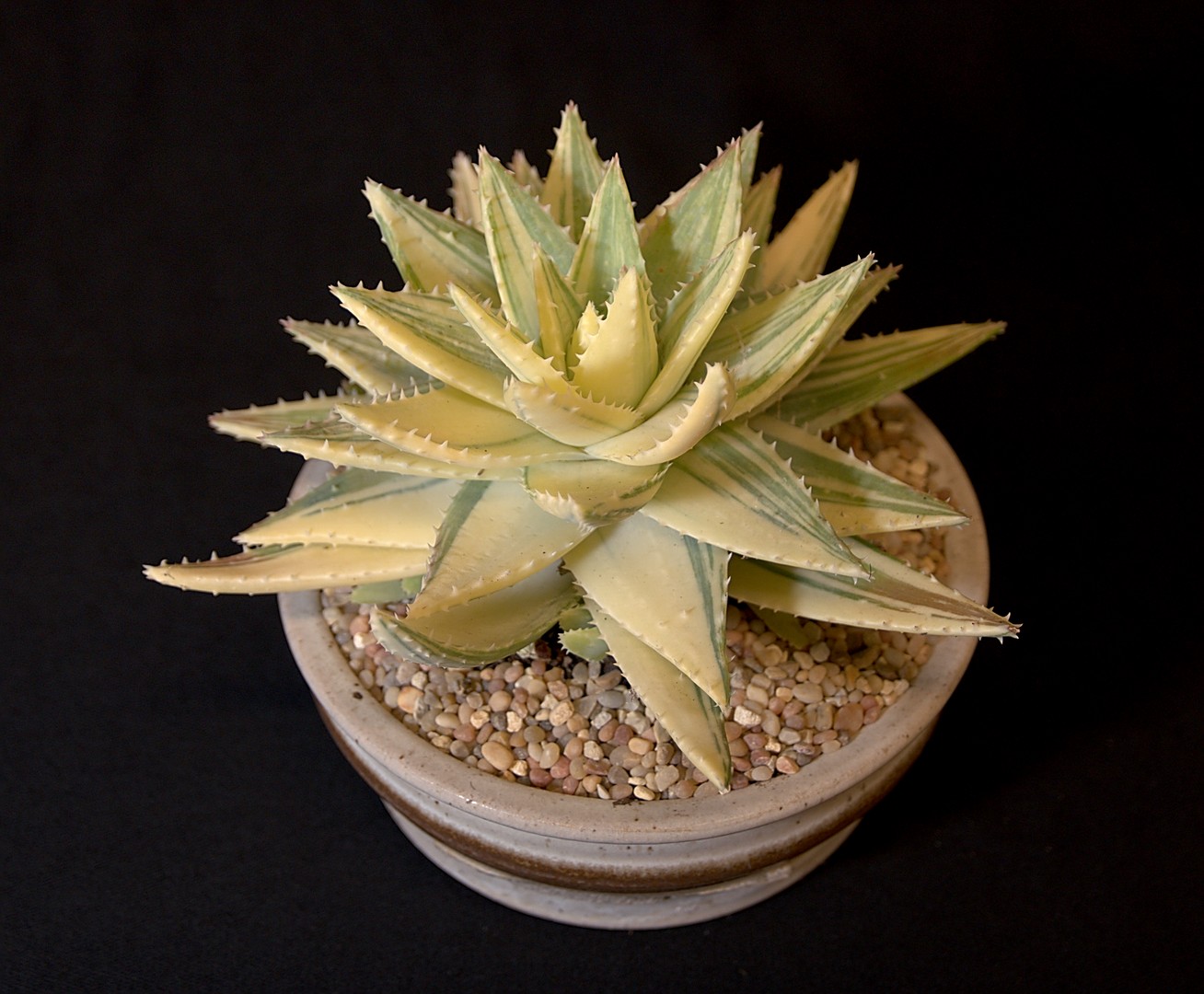Mini-Show Results September, 2019
Cactus of the Month: Variegated Cactus. Succulent of the Month: Variegated Succulent.
Photography by: Mike Short
Results submitted by: Jim Tanner
Open Cactus
1st: Phyllis DeCrescenzo – Opuntia vulgaris variegata
2nd: Gary Duke – Mammillaria hahniana
2nd: Gary Duke – Ferocactus wislizeni
3rd: Phyllis DeCrescenzo – Opuntia Variegate
3rd: Phyllis DeCrescenzo – Opuntia Variegate
Open Succulent
1st: Laurel Woodley – Euphorbia milii ‘Fireworks’
2nd: Jim Gardner – Agave ‘Kichijokan’
2nd: Jim Gardner – Euphorbia lactea Crest Variegate
3rd: Maria Capaldo – Hoya kerrii variegata albo marginata
3rd: Jim Gardner – Agave ‘Snow Glow’
Intermediate Cactus
1st: Coni Nettles – Opuntia monacantha f. monstruosa variegata
2nd: Barnard Johnson – Opuntia vulgaris variegata
Intermediate Succulent
1st: Sally Fasteau – Cryptanthus bivittatus ‘Pink Star’
2nd: Sally Fasteau – Agave isthmensis medio alba
2nd: Coni Nettles – Sansevieria hahnii
3rd: Dale La Forest – Sansevieria kirkii ‘Silver Blue’
3rd: Coni Nettles – Agave ‘Kichiokan’
Novice Cactus
1st: Ted Johnson – Opuntia vulgaris variegata
2nd: Jim Tanner – Gymnocalycium mihanovichii ‘Moon Cactus’
3rd: Diane Cottrell – Opuntia monacantha
Novice Succulent
1st: Ted Johnson – Aloe brevifolia variegata
2nd: Diane Cottrell – Agave quadrifolia
3rd: Ted Johnson – Kalanchoe fedtschenkoi
LATIN LOOKUP – Loquerisne Latine (Do you speak Latin)?
The meanings of latin plant names on this page – from http://davesgarden.com/guides/botanary/
- Agave [a-GAH-vee]
Noble, handsome. - alba [AL-ba]
White. - Aloe [AL-oh]
From the Arabic Alloeh. - bivittatus [biv-it-TAY-tus]
Two-banded. - brevifolia [brev-ee-FOH-lee-uh]
Short leaves. - Cryptanthus [krip-TAN-thus]
Hidden flower. - Euphorbia [yoo-FOR-bee-uh]
Named for Euphorbus, Greek physician to Juba II, King of Mauretania. - fedtschenkoi [fed-tscheng-koh-eye]
Named for Alexei Fedtschenko 19th century Russian botanist and plant collector. - Ferocactus [fer-oh-KAK-tus]
From the Latin ferus, (fierce) and cactus, referring to its heavy spines. - Gymnocalycium [jim-no-kal-LISS-ee-um]
From the Greek gymnos (naked) and kalyx (covering; calyx); the flower buds are naked. - hahniana [hahn-ee-AY-na, hahn-ee-AH-na]
Named for Hahn; the specific honoree is unknown. - hahnii [HAHN-ee-eye]
Named for Hahn; the specific honoree is unknown. - Hoya [HOY-a]
Named for Thomas Hoy, early 19th century botanist and head gardener for the Duke of Horthumberland at Syon House. - isthmensis [isth-MEN-sis]
Of or from an isthmus, a narrow strip of land bounded by water on both sides (i.e., the Isthmus of Tehuantepec). - Kalanchoe [kal-un-KOH-ee]
From the Chinese name for one of the species. - kerrii [KER-ee-eye]
Named for Arthur Francis George Kerr, 20th century Irish physician and botanist in Thailand. - kirkii [KIR-kee-eye]
Named for Kirk; the person commemorated depends on the specific epithet. - lactea [lak-TAY-uh]
Milky. - Mammillaria [mam-mil-AR-ee-uh]
Nipple- or teat-like. - marginata [mar-jen-AY-tuh, mar-jeh-NAH-tuh]
Margined. - mihanovichii [me-han-oh-VIK-ee-eye, my-han-oh-VIK-ee-eye]
Named for Nicolas Mihanovich, 20th century Yugoslavian shipping magnate and patron of botany. - milii [MIL-ee-eye]
Named for M. le baron Milius, Governor of Isle Bourbon, present-day Isle de la Reunion (Reunion Island). - monacantha [mon-ah-KANTH-uh]
From the Greek monos (one, only) and akantha (thorn, spine). - monstruosa [mon-stru-OH-sa]
Strange, wonderful; monstrous; also spelled monstrosa. - Opuntia [op-UN-shee-a, op-UN-tee-a]
Named after Opus (Greece), an area where other cactus-like plants were grown. - quadrifolia [kwad-ree-FOH-lee-uh]
Four-leaved. - Sansevieria [san-se-VEER-ee-uh]
Named for Prince Raimond de Sansgrio de Sanseviero, 18th century patron of botanical expeditions. - variegata [var-ee-GAY-tuh]
Variegated. - vulgaris [vul-GAIR-iss]
Common. - wislizeni [wis-LIZ-en-ee]
Named for Frederick Adolf Wislizenus, 19th century German physician and amateur botanist who collected in the southwestern U.S..
